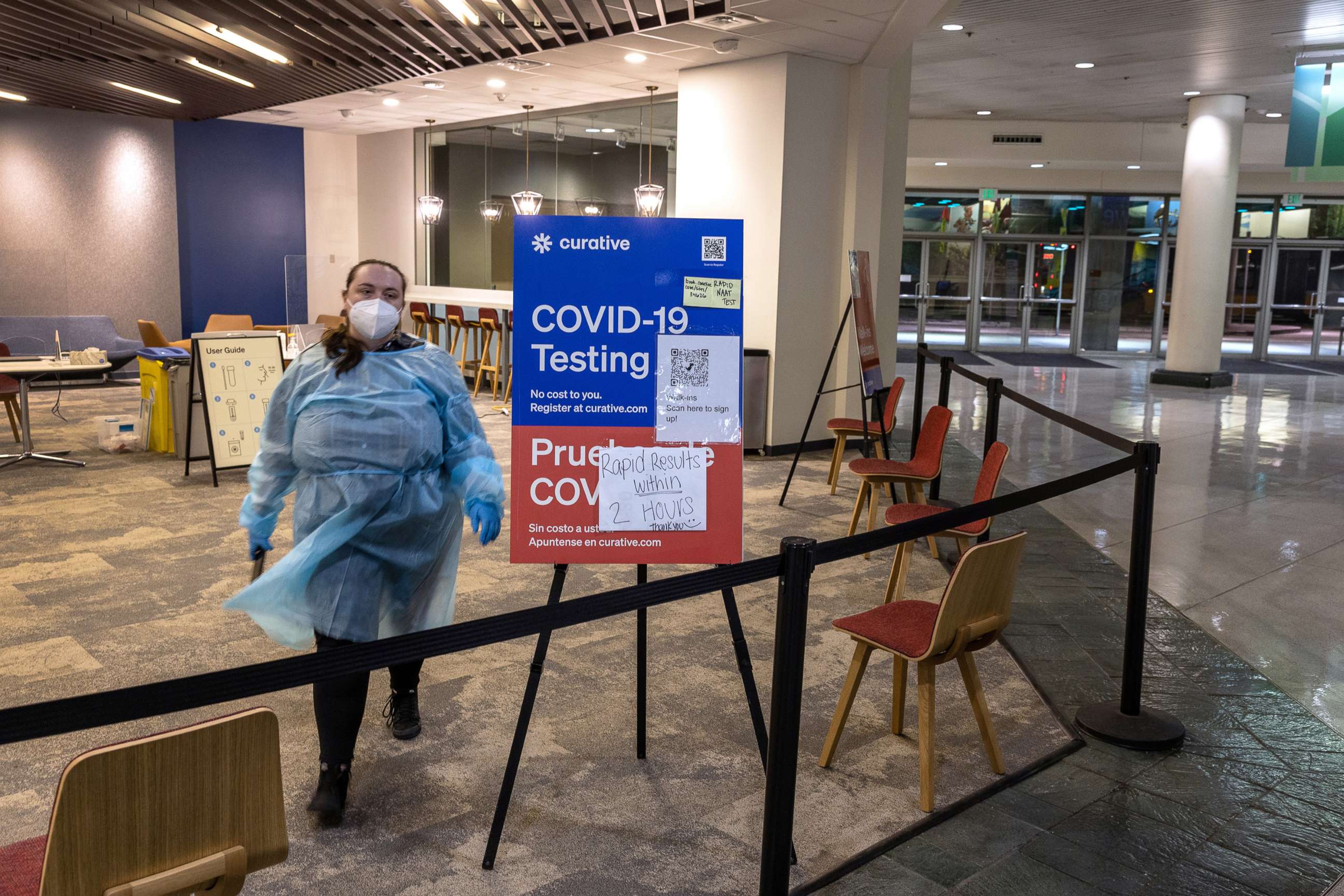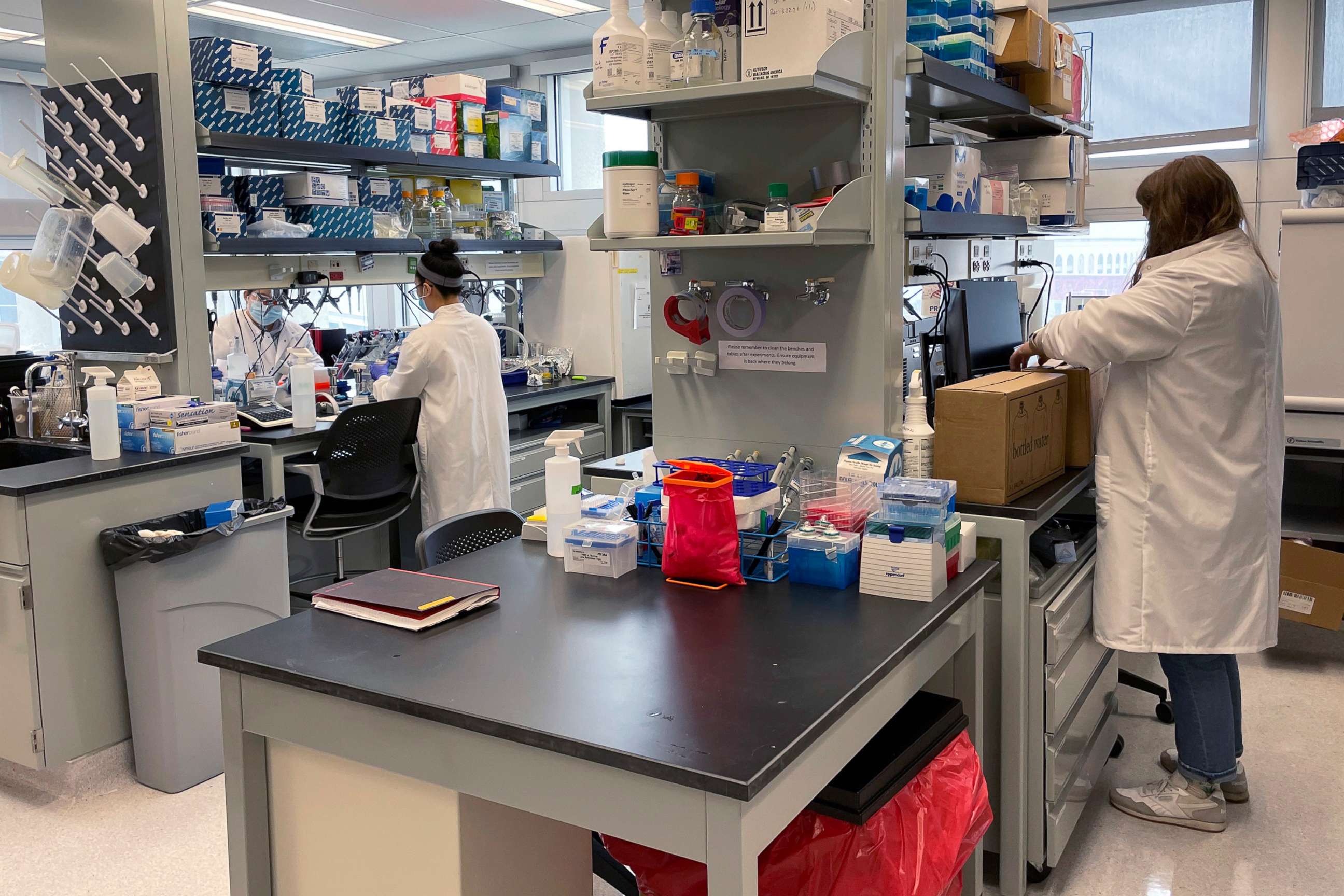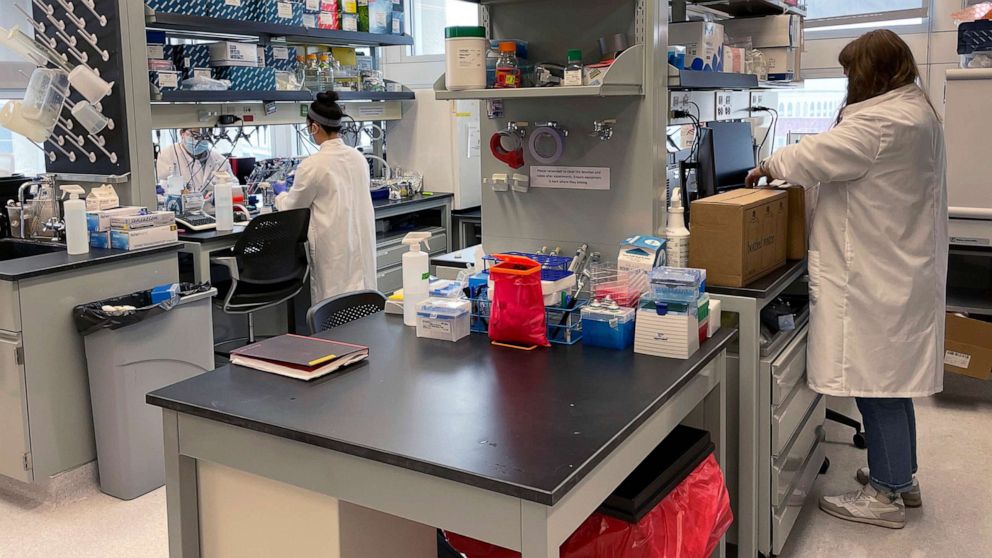Omicron subvariant BA.2 now the dominant variant in the US, estimates show
The highly contagious omicron subvariant BA.2 is now the dominant COVID-19 strain in the United States, according to data released by the Centers for Disease Control and Prevention on Tuesday.
As of March 26, BA.2 is projected to account for nearly 55% of new COVID-19 cases in the U.S., estimates show. The predominance of BA.2 comes as some parts of the country begin to see an uptick in new COVID-19 infections.
In particular, in recent weeks, the Northeast has seen an increase in its reported infection rate. In the New York-New Jersey region, where BA.2 is estimated to account for more than 70% of new cases, infections are up by nearly 47% in the last two weeks.

Similarly, wastewater surveillance indicates upticks in the New England area, where BA.2 is also projected to account for more than 70% of new cases.
The signs of a resurgence come after dozens of states have moved to shutter public testing sites. With more at-home COVID-19 tests now available, most Americans are not reporting their results to officials, and thus, experts said infection totals are likely significantly undercounted.
The presence of BA.2 has not only been growing domestically, but also globally. Last week, the World Health Organization reported that worldwide, BA.2 accounted for 86% of sequences from the last four weeks.
"Omicron is sweeping the globe," WHO technical director Dr. Maria Van Kerkhove reported last week. "Whether or not we will see BA.2 sweep the world — we're seeing that happen right now. This is not a theoretical. Omicron is a highly transmissible variant of concern. BA.2 is more transmissible than BA.1, and what we are starting to see in some regions of the world, and in some countries, [is] an uptick in cases again.”
Scientists believe BA.2 is more transmissible than the original omicron strain, BA.1, though at this time, it is not believed to cause more severe disease.

Initial estimates show that BA.2's transmissibility may range between 30% and 80%, and preliminary research suggests that if you were recently infected with the original omicron strain, BA.1, it is rare to get reinfected with BA.2.
Although the increase is partially due to BA.2’s increased transmissibility, Van Kerkhove added that the decision by many countries to lift public health and mitigation measures has also played a role in the upsurge.
“We certainly, will be seeing increase in cases," Dr. Anthony Fauci, the nation's top infectious disease expert, said during an appearance on BBC's "Sunday Morning," this week, further warning that it may be necessary to adopt some mitigation and masking measures should the nation see a resurgence in hospitalizations.
"We need to be prepared for the possibility that would have another variant that would come along,” Fauci said. “If things change, and we do get a variant that does give us an uptick in cases of hospitalization, we should be prepared and flexible enough to pivot towards going back at least temporarily to a more rigid type of restrictions such as requiring masks indoors.”
ABC News’ Sony Salzman and Eric Strauss contributed to this report.




